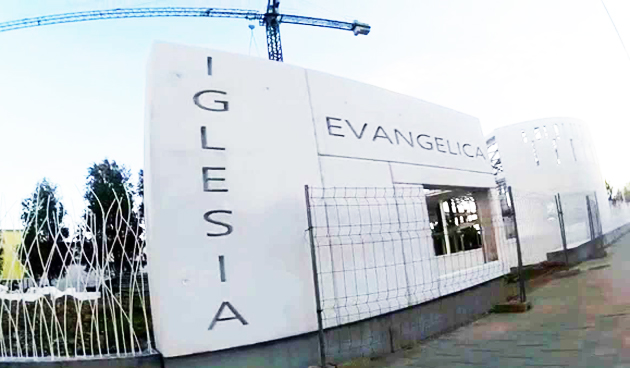Any term can become slippery through decades of use (or mis-use) and it is all too easy for a church with the ‘right’ name to have moved from the firm foundation of Scripture.
 A church under construction in León (Spain).
A church under construction in León (Spain).
What’s in a name?, soliloquised Juliet, as she mused on the political fall-out from her fall-in of love with Romeo. In the end, the name - because of the family to which it belonged - proved too hot to handle, and the two young lovers took their own lives.
European evangelicals (or should that be Evangelicals?) are hardly suffering a tragedy of Shakespearean proportions yet they are asking themselves the same question, and facing somewhat of an identity crisis as a result.
The term ‘evangelical’ comes from the Greek εuαγγeλιον, which means ‘gospel’ or ‘good news’. The classic statement in the Bible that defines this ‘good news’ is found in the Christmas story, in Luke 2, in the words of the angel to the shepherds outside Bethlehem:
‘I bring you good news[1] of great joy that will be for all the people. Today in the town of David a Saviour has been born to you; he is Christ the Lord.’
We can see that εuαγγeλιον is a noun; the issues arise today when, in English at least, the term is used as an adjective. Any term can become slippery through decades of use (or mis-use) and it is all too easy for a church with the ‘right’ name to have moved from the firm foundation of Scripture.
My own church has the word ‘Evangelical’ in its title, which is intended to convey that we are a Bible-teaching and Bible-believing church. We might be traditional or ‘charismatic’ in our worship style, but we are centred on the Word of God. We are an independent church, so we don’t have any denominational label to add to the word ‘Evangelical’ (a proper noun, in this case). Yet there are, of course, evangelical Christians (and churches) within all the major Protestant denominations. They don’t add the word ‘Evangelical’ to their title, but would show that they are by their churchmanship.
Yet in common parlance in the UK, the term ‘evangelical’ (small ‘e’) is coming to be used as an adjective, meaning something akin to ‘radical’ or ‘passionate’. When applied to Christians by the proverbial bloke in the street it can mean anything from ‘happy clappy’ to ‘slightly unhinged’! However close to the truth that might be (let the reader judge), we at least have opted not to use the term ‘Evangelical’ in our church publicity, but to present ourselves to our community simply as ‘... Church’. On the other hand, Christians looking for a Bible-believing church find the term ‘Evangelical’ helpful in their search.
Elsewhere the term creates different problems. How should one translate Evangelische Kirche from a German context? The words literally mean ‘Evangelical Church’, but by and large represent a liberal tradition today that would be far from even the Lutheran moorings of its infancy. It seems better to translate that as Protestant Church, leaving open the question of their theological emphases.
And so to Spain... where Evangelical Focus has been started. The terms ‘Protestant’ and ‘Evangelical’ are sometimes used almost interchangeably, even though they offer different nuances.
Most Protestant churches in Spain have Iglesia Evangélica on their front walls because the term Protestante retains some negative connotations, whilst the desire of this media project - Evangelical Focus - is that we should be giving exactly what our name suggests: focusing on the wonderfully good news of salvation in the Lord Jesus Christ.
So, Evangelical or evangelical? The answer is simple: both! If the term at heart means ‘gospel’, which itself is the heartbeat of the Christian faith, then it is worth retaining, whatever confusion the man in the street may have with it. If it is part of a title or grouping of churches, then ‘Evangelical’ seems to fit. If however, it is describing a church’s ecclesiology or a person’s beliefs, then ‘evangelical’ does the job.
------
[1] In fact, the term in Luke 2 is in verbal form in the Greek, but there are 41 occurrences of the noun εuαγγeλιον in the New Testament.
Jonathan Dawson is pastor of a church in England and member of the Evangelical Focus tanslation team. He lived in Spain for 20 years, and also served there as a pastor.

Las opiniones vertidas por nuestros colaboradores se realizan a nivel personal, pudiendo coincidir o no con la postura de la dirección de Protestante Digital.
Si quieres comentar o